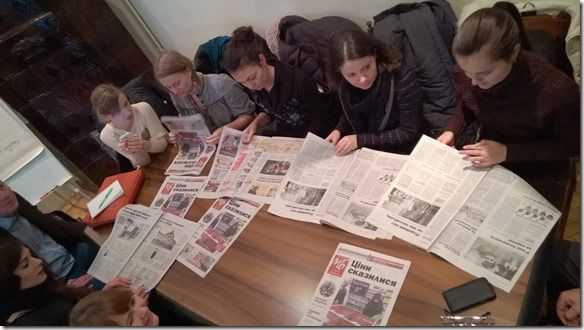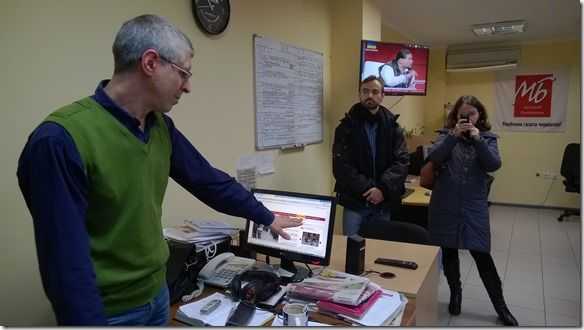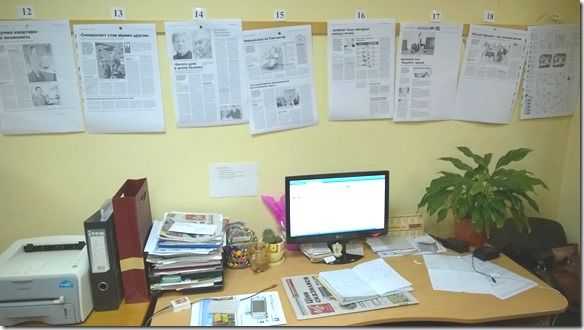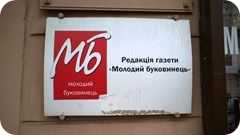As part of a training event with Deutsche Welle in Ukraine this week we visited a local newspapers offices. The small team at Molbuk.ua, Molodyi Bukovinetz, are approaching the question of print vs online with limited resources in a country where honest reporting is becoming more and more important.
With a team of 12 journalists, senior editor Bohdan Zahaiskiy has the task of moving resources from ‘old’ to ‘new.’ He took the time to explain some of the problems he faces including security issues, re-training and revenue.
Currently just 10% of total revenue comes from online media but the expectation is that the emerging audience of young, net-savy people will leave them standing alone if they don’t operate online but at the same time, traditional journalists are struggling with this new style of journalism. Around 40 articles per day go to the online edition and while the early stages of online presence were just a mirror image of the print edition that has changed. Content is now tailored for the online edition and the pressures that this additional work brings means that some elements of traditional journalism are reduced.”There’s sometimes no time to check facts but the online version at least gives us a chance to make corrections later.” says Bohdan via our interpreter. He’s aware that changes can erode reader trust though.

Bohdan tells us that the older journalists are not as quick as the young employees but that the more experienced employees are helping to improve the classic skills. As we looked at the blurry photograph on the front page of todays edition we were told it was because the image had been taken by a journalist with their mobile phone and as we looked around there weren’t many smartphones to be seen. Money is tight here.

As we walk into the small newsroom I notice a single whiteboard with page numbers and story ideas and we start talking about software tools. Journalists simply use Google docs on a Linux build to write their articles and the images and multimedia content are assembled and published through DLE, the Data Life Engine content management system which, interestingly, is a product out of Russia. The team seems happy with stability, updates and in combination with a Kiev-based hosting service that includes DDOS protection. The senior editor appears to be happy with security and had no major problems that he wanted to tell us about.
The team is evolving, gaining more skills and learning about social networking as an important channel. A post on Facebook just over a year ago was responsible for mobilizing the public into starting their protests against the government and everyone here is very aware of that.

Papers hang on the wall above a PC reminding us of the old-media focus but it’s clear that Molbuk.ua are working towards a new-media future. It’s been interesting to see how a small, local newspaper with extremely limited resources is handling this change.
This report was written as part of the media security course held by Deutsche Welle Akadamie in Chernivtsi, Ukraine.











